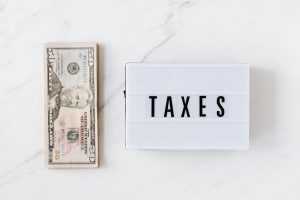What Type of Business Loan Should I Apply For?
Launching a company is an exciting dream for entrepreneurs, but this doesn’t mean there won’t be operational and logistical challenges along the way. Financing is a big hurdle small business owners will face at some point. Fortunately, there are many methods for businesses to access cash, including business loans.
Owners can pursue various small business loans – there are a lot of choices! What it ultimately comes down to is:
● Correctly identifying the need for a loan
● Determining how much money is adequate
● Choosing the best small business loan for their situation
Ultimately, there is no one-size-fits-all loan solution. You may need startup funding, cash for expansion, or paying invoices. The best option will depend upon your company’s current needs, revenue, and how fast you can repay the loan.
Common types of small business loans
As you seek out your financial loan options, it’s a good idea to carefully weigh the pros and cons because you don’t want to delay your ability to obtain funding or get locked into unappealing terms. Let’s take a closer look at several common types of small business loans.
SBA loan
The Small Business Administration (SBA) partners with an array of U.S. financial institutions to provide funding for businesses. Lenders get a guarantee they are protected from loss if a borrower defaults on their payments. Typically, a small business owner can obtain a loan ranging from $500 to $5,500,000 with long-term repayment plans and competitive terms. The three categories of SBA loans are 7(a) loans, 504 loans, and Microloans.
While there are many SBA loan options, the biggest drawback is the application process and the stringent qualifications that come with it. The process is intensive, and applicants may need to wait longer for approval than other conventional loans.
Furthermore, it can take more than two months for a borrower to actually receive funds after approval. Some businesses simply can’t wait that long. That being the case, these loans are best suited to companies borrowing money to use for long-range plans with longer repayment terms.
Business line of credit
Some smaller companies opt to apply for a business line of credit. This type of loan works very similar to credit cards because you can acquire money when you need to, up to a set amount predetermined at the origin of the loan. As you borrow money, you simply repay the amount you borrow as long as you don’t exceed your maximum line of credit.
Once your balance is paid off (with interest), you can borrow more, up to your limit. The flexibility and speed of funding a business line of credit offers are some of the primary appealing reasons why owners opt for this type of loan. Drawbacks to lines of credit include higher interest rates, unpredictable fees, and a potential need to supply collateral or personal guarantees.
Equipment Financing
If your company needs to buy or lease equipment, you can pursue a specific loan designed for this purpose in the form of an equipment financing loan. You can buy anything you need in terms of computers, machinery, or other kinds of equipment you need for operational purposes. Your equipment purchases are typically used as collateral to secure repayment of the loan.
Benefits include an ability to shop for more competitive rates, fast funding, and longer repayment terms. The big disadvantage is the limitation of the borrowed money to only be used to purchase equipment and not pay for other needs. You also may or may not have to put down a down payment. If you default on your loan, the lender can claim your equipment, and if this occurs, it could significantly disrupt your operations.
Credit Cards
Another option is to apply for a business credit card. While it’s different from the revolving business line of credit option, the concept is similar. When you utilize a designated business credit card, you can borrow or purchase what you need as long as you don’t exceed your credit limit. It works very similarly to a personal credit card.
You repay your card much like you would a personal card. Business credit cards are ideal to use to pay for small expenses, travel costs, or operational routine bills, such as utilities. You can even get credit card rewards like you do with your individual credit cards.
Also, like consumer cards, interest rates can be high on business cards. However, as long as you pay off your balance each month, it’s a great short-term option for borrowing money. If you don’t, this can have an adverse impact on your personal credit score, so it’s important to be mindful of this.
Other Loan Options
If none of the above loan opportunities sound feasible or present complications, you have other available options to explore. As with any of the above, be sure to do your homework and explore the advantages and disadvantages of each. One of the following may suit your company’s financial needs:
● Unsecured personal loans
● Merchant cash advances
● Personal loans for business
● Commercial real estate loan
● Merchant cash advance (MCA)
● Invoice factoring
● Invoice financing
● Startup loans
● Working capital loans
Determining the best small business loan for your company
In addition to the various types of small business loans available, access to them may be circumstantial or depend upon different factors, either by the lender or by you. Factors affecting the type of loan to pursue include your company’s size, industry, specific need for funding, or other circumstances.
Details you’ll want to consider before committing to a loan include:
● Lenders’ reputation and reliability
● Interest rate and APR
● Repayment terms
● Application fees
● Collateral and personal guarantee requirements
It is always a good idea to shop around for small business loans, much like you would for a mortgage or other type of personal loan. With so many options available to businesses, you don’t want to inadvertently get yourself locked into a commitment that results in you losing money you may not have had to pay otherwise.
Before applying for any business loan, be sure to do substantial research on your lender options. Then, compare their loan terms, factoring in any short and long-term benefits in your decision-making.
How to apply for a small business loan
Lenders aren’t going to simply approve small business loans. You’ll need to go through a process since they’ll want to feel assured you’ll repay your debt. To apply for a loan, consider the following steps you’ll need to take to qualify.
● Choose the loan best suited to your needs
● Determine which types of loans you qualify for
○ Check your personal and business credit scores and see if they meet lender requirements
○ Calculate what you can afford in terms of loan payments
● Compare small business lenders
● Gather application materials
○ Information about your company and yourself
○ Have a sound business plan ready to share with lenders
○ Prepare required financial statements, including balance sheets, cash flow statements, accounts receivable, accounts payable, and bank statements
○ Consider what you have to use as collateral if required
● File your loan application
● Review loan agreement
● Obtain your funding
Obtain your EIN to apply for a business loan
Obtaining an employer identification number (EIN) is important for numerous reasons, including giving you the ability to legally hire employees, open business bank accounts, apply for licenses, file business tax returns, and obtain business loans.
Whether you plan to launch a startup or grow your existing company, you’ll need your EIN before you apply for a business loan. This simplifies the process and helps lenders verify the legitimacy of your business and examine your financial history.
Conclusion
Getting a small business loan offers many advantages to growing and improving your company. However, sometimes this can pose some challenges. To increase your chances of avoiding drawbacks and successfully acquiring funding, it’s important to carefully evaluate all types of available loans to determine which ones are the best options. Have a primary plan and a backup loan option in case your first choice doesn’t work out.








